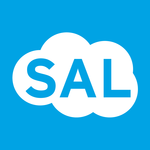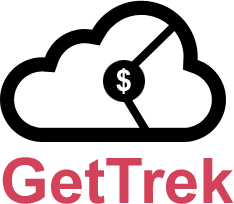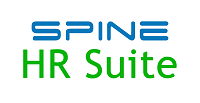Description

GCPAY

Salarium
Comprehensive Overview: GCPAY vs Salarium
GCPAY and Salarium are specialized software solutions that cater to different market needs and industries. Here's an overview:
GCPAY
a) Primary Functions and Target Markets:
- Primary Functions: GCPAY is a cloud-based payment management and construction compliance software designed to streamline the payment process in the construction industry. Its primary functions include managing and automating the application for payment (AIA-style) process, compliance tracking, lien waiver exchange, and facilitating communication between general contractors and subcontractors.
- Target Markets: GCPAY primarily targets construction companies, particularly general contractors, subcontractors, and project managers who need to manage large-scale construction projects efficiently. The solution is tailored to serve companies operating in commercial building, infrastructure, and industrial construction sectors.
b) Market Share and User Base:
- Market Share: GCPAY is a niche product in the broader construction management software market. It possesses a fair share within its specific area of payment management and compliance, but it competes with larger platforms that offer more comprehensive project management solutions.
- User Base: The user base consists mainly of construction firms looking to enhance their financial management operations and ensure compliance with industry regulations.
c) Key Differentiating Factors:
- Specialized Focus: GCPAY’s strength lies in its focused functionality for payment and compliance management within the construction industry, whereas broader platforms may lack in-depth features specific to these needs.
- Integration Capability: It integrates with popular construction accounting systems like Sage, Viewpoint, and QuickBooks, offering seamless transitions and data management.
- User-Friendliness: Designed with ease of use for construction professionals in mind, requiring minimal training for effective use.
Salarium
a) Primary Functions and Target Markets:
- Primary Functions: Salarium is an end-to-end payroll and human resources management system that automates payroll processing, time and attendance tracking, and employee management. It also provides functionalities for compliance, reporting, and employee self-service.
- Target Markets: Salarium targets small to medium-sized enterprises (SMEs) across various industries that require robust payroll solutions without extensive HR infrastructure. Its market is particularly strong in regions with complex payroll regulations like Southeast Asia.
b) Market Share and User Base:
- Market Share: Salarium is quite prominent in regions such as Southeast Asia due to its strong compliance features with local labor laws. However, it competes with a range of HR and payroll solutions globally.
- User Base: The user base is diverse, including companies from sectors like retail, manufacturing, and professional services, which need scalable payroll solutions. It’s particularly attractive to businesses needing compliance with various regional payroll regulations.
c) Key Differentiating Factors:
- Regional Focus and Compliance: Salarium distinguishes itself with strong local compliance capabilities, making it particularly appealing in regions with intricate legal payroll requirements.
- Comprehensive Payroll Features: Offers comprehensive features beyond basic payroll, including timekeeping and biometric integrations for attendance, which benefit companies needing a full-scale HR solution.
- Affordability and Scalability: Offers competitive pricing with scalable features for growing businesses, providing flexibility that many small to medium enterprises find advantageous.
Conclusion
While GCPAY and Salarium both serve specific niches within their respective industries, each product has unique strengths and market focuses. GCPAY excels in the construction industry's payment processes, whereas Salarium stands out in payroll and HR management, particularly in compliance-heavy regions. Depending on the industry's needs, these products offer distinct advantages for their users.
Contact Info

Year founded :
Not Available
Not Available
Not Available
Not Available
Not Available

Year founded :
2013
+63 2827 11523
Not Available
Singapore
http://www.linkedin.com/company/salarium
Feature Similarity Breakdown: GCPAY, Salarium
To provide a comprehensive feature similarity breakdown for GCPAY and Salarium, we need to consider the main functionalities of each platform as they pertain to payment and payroll management solutions. Here's a breakdown based on typical features of these types of software, as of the last information available to me:
a) Core Features in Common
1. Payment Processing:
- GCPAY: Primarily designed for construction payment management, offering features like managing pay apps, lien waivers, and compliance tracking.
- Salarium: Offers payroll processing capabilities that include salary computation, tax deductions, and direct deposit options.
2. Compliance Tracking:
- GCPAY: Includes detailed compliance tracking for construction projects, focusing on lien waivers and documentation.
- Salarium: Ensures compliance with labor laws and regulations regarding salary computations and employee benefits.
3. Reporting and Analytics:
- Both platforms provide reporting features to track payments, payroll, and compliance, supporting better decision-making and audit processes.
4. Integration Capabilities:
- They offer integrations with other software systems to streamline financial and HR workflows. GCPAY might integrate with construction management software, while Salarium might link with HR and accounting systems.
b) User Interface Comparison
GCPAY:
- Design: Tailored for the construction industry, the interface is somewhat technical, catering to project managers and financial teams familiar with construction workflows.
- Usability: Provides specialized dashboards and tools focused on payment processes and contractor communications.
Salarium:
- Design: More general payroll system design catering to HR teams, with interfaces that are straightforward to navigate for payroll processing.
- Usability: Focuses on user-friendly navigation to manage employee data, process payroll, and view reports efficiently.
c) Unique Features
GCPAY:
- Construction Payment Specific: Unique tools for managing construction-specific payment processes such as lien waiver exchange, subcontractor approval workflows, and specialized compliance management solutions.
- Draw Request Processing: Facilitates managing draw requests directly linked to construction project milestones.
Salarium:
- Comprehensive Payroll Features: Offers extensive payroll management capabilities, including biometric integration for attendance tracking and self-service portals for employees.
- Time and Attendance: Features like time tracking, leave management, and scheduling, which are less relevant in the construction payment management context.
In summary, while GCPAY and Salarium share characteristics common to financial processing platforms, they cater to distinct industries and have specialized features aligned with their core target markets. GCPAY focuses on construction-specific payment management, offering unique compliance and lien management features, while Salarium emphasizes comprehensive payroll and HR management functionalities.
Features

Not Available

Not Available
Best Fit Use Cases: GCPAY, Salarium
GCPAY
a) Best Fit Use Cases for GCPAY:
-
Construction Industry: GCPAY is tailored primarily for the construction industry. It excels in managing complex subcontractor payment processes, compliance documentation, change orders, lien waivers, and more. Construction projects can be intricate with multiple stakeholders, and GCPAY streamlines the billing and payment workflow between general contractors, subcontractors, and suppliers.
-
Large-Scale Projects: Given the detailed compliance and documentation needs of large construction projects, GCPAY is an optimal choice. It helps in managing extensive documentation, ensuring compliance, and automating repetitive tasks such as invoice approvals and payment statuses.
-
Businesses Needing Integration with Existing Systems: GCPAY integrates well with other construction management software, making it ideal for businesses that want a seamless interface with platforms like Procore, Sage 300, and Viewpoint.
Salarium
b) Best Fit Use Cases for Salarium:
-
SMEs and Enterprises with Complex Payroll Needs: Salarium is designed to handle detailed payroll processes such as time tracking, attendance management, and payroll calculation. It is especially beneficial for businesses with complex salary structures, multiple shifts, and varying work hours.
-
Companies with Large, Diverse Workforces: Companies that operate across different regions or employ a large number of people can benefit from Salarium's robust payroll management system. Its ability to cater to different employment laws and standards makes it suitable for multinational operations.
-
Industries with High Turnover Rates: Businesses in industries like retail, healthcare, or hospitality, which often experience high employee turnover, will find Salarium's onboarding, payroll, and compliance features particularly useful.
Industry Verticals and Company Sizes
GCPAY:
-
Industry Verticals: Primarily construction and engineering. Companies involved in large real estate development, infrastructure projects, or even energy sectors where subcontractor management is critical will find GCPAY advantageous.
-
Company Sizes: While it can be used by mid-sized companies, GCPAY is particularly beneficial for larger companies and enterprises involved in large-scale projects due to its robust features and comprehensive integration capabilities.
Salarium:
-
Industry Verticals: Versatile across various industries like retail, manufacturing, healthcare, IT services, and more due to its flexible payroll capabilities. Businesses needing to manage diverse and widespread teams will find it useful.
-
Company Sizes: Suitable for both SMEs and larger enterprises. Its scalable nature and comprehensive features make it adaptable for smaller businesses aiming to streamline payroll processes and large companies that need to manage complex payroll environments efficiently.
In summary, while GCPAY focuses on niche construction industry needs, Salarium offers broad applications across multiple industries, each catering to different operational complexities and scales.
Pricing

Pricing Not Available

Pricing Not Available
Metrics History
Metrics History
Comparing teamSize across companies
Conclusion & Final Verdict: GCPAY vs Salarium
When deciding between GCPAY and Salarium, a thorough evaluation of their features, cost, scalability, ease of use, customer support, and specific use cases is essential. Here’s a conclusion and final verdict based on these criteria:
a) Best Overall Value:
Determining which product offers the best overall value depends strongly on the specific needs of the organization. However, a general assessment could be:
- GCPAY is likely to provide the best value for companies in the construction industry that require robust construction payment management and integration with industry-specific tools like Procore.
- Salarium may offer greater value for organizations seeking comprehensive payroll and time-tracking solutions with a strong emphasis on compliance and employee self-service capabilities.
b) Pros and Cons:
GCPAY
Pros:
- Industry Specific: Tailored for the construction industry, offering specialized tools for payment application processes and lien waiver management.
- Integration: Seamless integration with construction management software like Procore and other accounting systems.
- Streamlined Workflow: Facilitates efficient approval workflows and reductions in payment processing time.
Cons:
- Industry Limitation: Primarily beneficial for construction companies; other industries may not find it as useful.
- Complexity: The specialized nature may require more training for those unfamiliar with construction sector processes.
Salarium
Pros:
- Comprehensive Payroll: Offers wide-ranging payroll capabilities, including automated calculations and compliance with local laws.
- Time Tracking: Integrated tools for timekeeping, which are particularly useful for managing workforce attendance.
- User-Friendly: Designed with a focus on ease of use, allowing employees self-service access and an intuitive interface.
Cons:
- Focus: While it’s extensive in payroll and HR, it lacks specialized features for industries outside of general employment and payroll needs, which might limit its utility for construction billing specifics.
- Scalability: Depending on the organization's size and geographic location, scalability could be an issue if the software doesn’t support international compliance needs efficiently.
c) Recommendations:
- For Construction Firms: If you are a construction company, especially one integrated with Procore or similar platforms, GCPAY is the logical choice given its specialized features tailored for the industry's payment processes.
- For General Payroll and HR Needs: If your organization’s primary need is efficient payroll processing, compliance, and office-wide time tracking, Salarium is advisable.
- Cross-Industry Needs Consideration: Evaluate your company's specific requirements, such as the need for industry-specific integrations versus the broader payroll management feature set.
- Trial and Demos: It’s wise for undecided users to take advantage of free trials or demos offered by both solutions to explore their interfaces, functionalities, and customer support responsiveness.
Ultimately, the best choice hinges on aligning the product’s strengths with your organizational needs and industry-specific requirements.
Add to compare
Add similar companies




